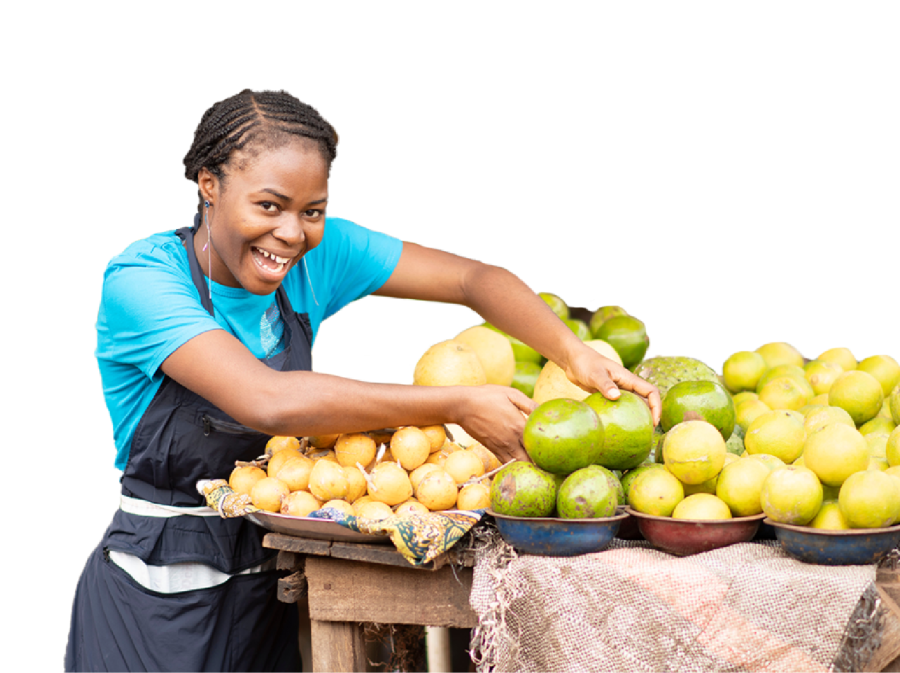UN Food Systems Summit Stocktake (UNFSS+4)
July 27–29, 2025
Addis Ababa, Ethiopia
Co-hosted by Ethiopia and Italy
July 27–29, 2025
Addis Ababa, Ethiopia
Co-hosted by Ethiopia and Italy
The UN Secretary-General has committed in his Chair Summary and Statement of Action on the UN Food Systems Summit to convene "a global stocktaking meeting every two years to review progress in implementing the outcomes of this process and its contributions to the achievement of the 2030 Agenda. This will be supported by the RBAs, the broader UN System and partners."

The UN Food Systems Summit Stocktaking Moment in July 2025 is a critical moment, four years on from the 2021 UN Food Systems Summit, to document progress on food systems transformation, strengthen accountability, and accelerate progress.
GAIN has been supporting the implementation of National Pathways through a range of projects and programmes, notably the Nourishing Food Pathways portfolio. At the Summit, together with our partners in government, the UN agencies, and other development organisations, we will share inspiring examples of successes achieved to date. We will also take a critical look at what still need to be done to unleash the full potential of food systems transformation to contribute to the Sustainable Development Goals.
GAIN will be actively participating in the plenary sessions and side events detailed below.
| Side Event | GAIN Leads / Focal Points | Date, Time & Venue |
|---|---|---|
| UNFSS Coalitions Session with Urban Food Systems Coalition | Dr. Ann Trevenen-Jones | Sunday, 27 July | Morning Hours |
| Catalyzing Change: Showcasing Nigeria’s Innovations and Collaborations in Food Systems Transformation | Sunday, 27 July at 14:00 - 15:15 | Conference Room CR-6 | |
| Multisectoral Governance to Scale up Impacts of Investments in Local Food Value Chains | Sunday, 27 July at 14:00 - 15:15 | Conference Room CR-5 | |
| Scaling Up Capacity for Financial Intelligence in Africa's Food Systems | Mark Gachagua | Monday, 28 July at 13:00-14:15| Room CR-3 |
| Leveraging Food Systems for Rio Synergies | Widya Sutiyo | Monday, 28 July at 13:00-14:15| Room CR-5 |
| Transforming Agrifood Systems: Lessons from a Multi-Stakeholder and Multi-Sectoral Approach in Mauritania | Stephanie Sargeant | Monday, 28 July at 14:00 - 15:15 | Conference Room CR-6 |
| Partnerships that Deliver: Unlocking Investments for a Resilient and Climate-Smart Agrifood System in Ethiopia | Ninon Alaniou | Monday, 28 July at 14:15-15:30 | Room CR-6 |
| Food is Never Waste: Advancing FST through Finance and Partnerships for FLW Reduction | Widya Sutiyo | Monday, 28 July at 14:15-15:30 | Room SBR |
| Breaking Silos and fueling change: Aligning Nutrition and Climate for Food System Transformation | Monday, 28 July at 14:15-15:30 | Large Briefing Room (LBR) | |
| Accelerating Food Systems Transformation: WHY and HOW | Tuesday, 29 July at 07:45 -9:00 | CR-3 | |
Strengthening Policy Coherence and Convergence for Food Systems Transformation
|
| Tuesday, 29 July at 7:45 |Conference Room CR-4 |
| Scope of Investment for Transformation towards an Equitable, Resilient, and Nutrition-Sensitive Food System: Evidence and Action | Monirul Hasan | Tuesday, 29 July 13:00 | Small Briefing Room |
Strengthening Urban-Rural Linkages through Local, Traditional, and Farmers Markets | Tuesday, 29 July 13:00-14:15 | Room: CR-3 | |
| Mobilising Investment for SDG2: The Role of Public-Private Partnerships | Widya Sutiyo | Tuesday, 29 July 13:00-14:15 | Room: CR-4 |
Four years on from the UN Food Systems Summit, how well are we progressing in transforming food systems so that they reduce hunger, increase access to healthy diets, reduce climate emissions, improve climate resilience, create good jobs, and nurture the environment? The numbers tell a mixed story. According to the Food Systems Countdown Initiative, itself a creation of the UNFSS, only 20 of 42 global food system indicators are trending positively (1), with none fast enough to meet 2030 SDG goals. These numbers are important but inevitably reliant on data that are 2–3 years out of date.
As a complement, this report brings us many new qualitative examples of food system transformation. They are a partial antidote to the rather gloomy numbers. The examples are distilled from the experiences of a group of organisations working at the country level, often together, in close partnership with governments and local organisations and therefore they represent only parts of the picture.
But the snapshots are highly revealing. They uncover “moments of change”. Sometimes the moments are obvious: a policy change, a resource reallocation, a shift in strategy. But often they are hidden in plain sight: the new committee that can make better decisions, the new data available to assess trade-offs between ministries, the coming together of private and public sectors in new ways.
While there is a growing recognition of the importance of youth engagement in food system decision-making and governance, existing research remains largely theoretical or anecdotal, with a scarcity of empirical studies providing robust data on the engagement and meaningful participation of young people in food systems. A first step towards providing such data is having strong, validated metrics and data-collection methods that can be applied comparably across contexts. This scoping review thus synthesises evidence on metrics and methods used to assess youth engagement in policy processes, with a specific focus on food system-related policies.
Since the lead-up to the UNFSS, we have been supporting countries to draw up pathways to better food systems, and to begin walking the talk. But many constraints still hinder progress, and reforms are sorely needed.
That’s why we have worked with governments to develop and implement a series of practical tools to strengthen policy decision making processes and capacities. These are tools created to give users a hand over major, common barriers. They are also designed to align with or to support ongoing national processes, such as monitoring plans, or indeed continental and transnational ambitions, including the Comprehensive Africa Agriculture Development Programme (CAADP), and the seven aspirations of Agenda 2063 which call for a more prosperous, integrated, democratic, peaceful, pan- African, people-driven, and influential Africa by 2033.
The tools collected here can be instrumental: in diagnosing food systems to identify critical gaps and untapped opportunities; in shaping nimble action plans in line with national priorities; in identifying much-needed policy reforms to ensure sectors act alongside each other, rather than against; and in providing new ways to effectively navigate political, financial, and technical impediments. Barriers have stood in the path of meaningful progress for too long – we must break through them.
Each piece in this series is available to download separately

Executive Director, GAIN

Senior Manager Food Systems Transformation Accelerator - GAIN Representative in Brussels

Senior Associate - Innovative Finance

Senior Technical Specialist

Technical Lead, Food Systems Governance Programme

Senior Associate, Policy Engagement and Advocacy Support

Head, Policy and Advocacy, Nigeria

Environment and Food Systems Advocacy Advisor

Country Advisor: Foresight for Food Systems, Social Protection, and Environment

Country Director, Kenya

Head of Policy and Advocacy, GAIN Ethiopia

Ethiopia Country Director, GAIN

Communication Manager, Demand Generation

Senior Policy Advisor - Pakistan

Policy & Influencing Manager, GAIN Mozambique and Senior Policy Advisor, Food Systems Summit 2021

Rwanda Policy Advisor

Project Manager, Food Fortification & Demand Creation GAIN, Benin

Global Youth Campaigns Coordinator, Act4Food & GAIN

Head of Programmes at GAIN Indonesia